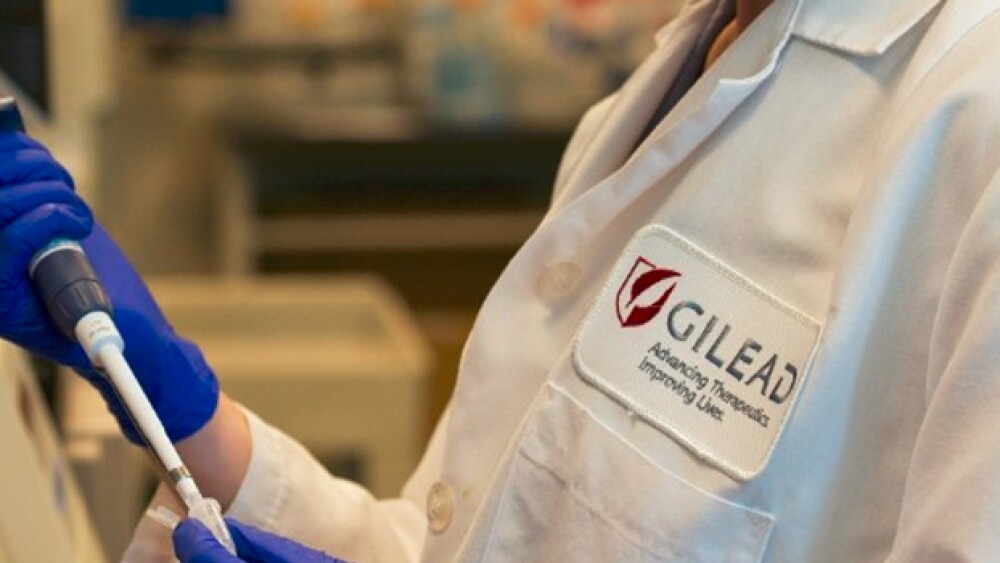Gilead Sciences and its development partner Galapagos NV announced positive data from its Phase II EQUATOR trial of filgotinib in psoriatic arthritis.
Gilead Sciences, based in Foster City, California, and its development partner Galapagos NV, headquartered in Mechelen, Belgium, announced positive data from its Phase II EQUATOR trial of filgotinib in psoriatic arthritis.
Filgotinib, a JAK1 inhibitor, was evaluated in 131 adults with moderate to severe psoriatic arthritis. The study hit its primary endpoint, which was an improvement in the signs and symptoms of the disease at Week 16. The assessment of improvement was by a 20 percent improvement score (ACR20) as assessed by the American College of Rheumatology.
Patients receiving filgotinib had an ACR20 response of 80 percent compared to a 33 percent response for patients receiving placebo. The ACR50 and ACR70 results at the sixteenth week were also significantly higher for patients on filgotinib.
That’s a dazzling response, considering that Pfizer’s Xeljanz, approved for the same indication, had an ARC20 of 50 percent.
The drug was generally well-tolerated and no new safety signals were observed.
“The data from the EQUATOR study are very impressive and indicate that filgotnib has the potential to have a significant effect on signs and symptoms of psoriatic arthritis, a condition where there is still a high unmet medical need,” said Philip Mease, director of Rheumatology Research at the Swedish-Providence-St. Joseph Health Systems and clinical professor at the University of Washington in Seattle, in a statement.
The two companies also announced that an independent Data Monitoring Committee (DMC) ran a planned interim futility analysis of its filgotinib Phase IIb/III SELECTION study in ulcerative colitis. This occurred after 350 patients finished the induction period in the Phase IIb part of the trial. The committee recommended the trial move into Phase III as planned for both the 100 mg and 200 mg per day dosage in biologic-experienced and biologic-naïve patients.
As part of the progression from Phase II to Phase III in the SELECTION trial, Galapagos receives a $15 million milestone payment from Gilead.
“We continue to see great potential with filgotinib to treat a range of inflammatory diseases,” said John McHutchison, Gilead’s chief scientific officer and head of Research and Development, in a statement. “As such, we are pleased with the continued progress of the development programs, including the EQUATOR results and advancing the SELECTION study into Phase III.”
In 2015, AbbVie backed out of its deal with Galapagos over filgotinib. That deal was originally for a total of $1.4 billion. AbbVie returned the rights to the drug, which was discovered by Galapagos, and was signed in 2012. AbbVie decided to work on its own ABT-494, another JAK1 inhibitor.
AbbVie’s ABT-494 (upadacitinib) met all the primary endpoints in September 2017 in its Phase III SELECT-BEYOND trial in patients with moderate to severe rheumatoid arthritis who did not adequately respond or were intolerant to treatment with biologic DMARDs. It has ongoing trials of the drug in psoriatic arthritis, Crohn’s disease, ulcerative colitis, ankylosing spondylitis and atopic dermatitis. However, there have been safety concerns with the death of two patients in the trial. Another study, completed in April 2018, had no issues with patient deaths.
Geoffrey Porges, an analyst with Leerink, said in a note to investors at the time, “The total clinical experience of upadacitinib has now increased substantially without demonstrating a major risk for VTEs, which we believe reduces the risk of unexpected asset failure. After the recent failure of Rova-T in third-line small cell lung cancer, and the related drop in AbbVie’s stock value of more than 20 percent, the risk of subsequent pipeline failure now also appears substantially reduced.”
Any company working on JAK1 inhibitors for these indications will be competing with AbbVie’s mega-blockbuster drug Humira, which has managed to make deals with competitors to avoid biosimilar competition until 2023.





